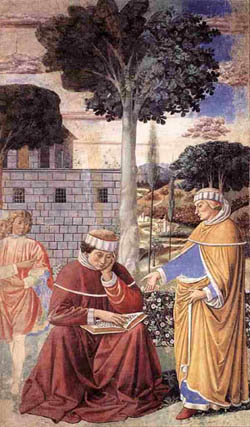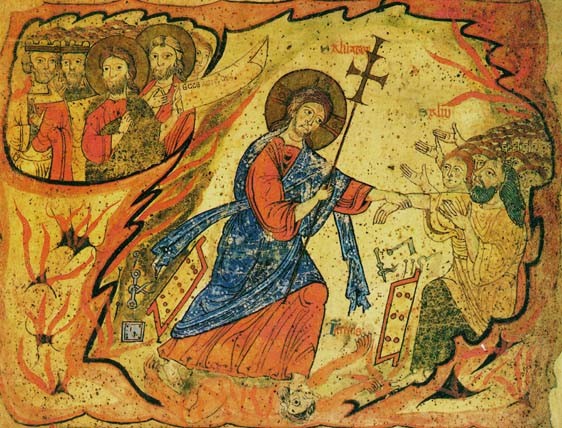
I consecrated my life to Jesus Christ when I was about three. I study theology. I start ministries and spend a lot of time figuring out how to better serve the Body of Christ. I preach. I evangelize. I am usually bursting at the seams with annoying evangelical zeal. I officiated at a marriage as a laywoman last fall; and this past weekend, I donned a cassock to assist at another friend's wedding. "You look GREAT in vestments," some ECUSA friends told me with a wink and a nudge. I was honored beyond words by their loaded statement. But I will never be a priest.
The ordination of women, celebrated yesterday by
the Anglican Communion's decision to promote Bishop Katharine Jefferts Schori of Nevada as its presiding bishop on Sunday, making her the first woman to lead a church in the worldwide Anglican Communion, apparently enacts themes of "liberation" and "revolution" and "inclusion" familiar in Christ's renewal of the world; but the ordination of women and the installation of Bishop Katherine does not ring with the faithful tradition of the Church because it does not, in fact, accord with the actual enactment of Jesus.
The Church has, until the past century, always held that despite great and immediate need, no one might presume to take up the task of laboring in the Lord's fields without actually being sent by the Lord of the Harvest Himself. Christ fulfilled His own command and prayer that workers might be send among His people by selecting and sending twelve particular men and their deliberately ordained successors to continue His work in the world. The Church has long held that her authority to ordain her clergy is purely derivative from the enactment of Christ Himself in sending twelve particular men to be His apostles; as such, the Church simply posesses no authority to ordain women. Certainly women are pastorally skilled, intellectually and emotionally capable; certainly they posess every dignity and God-given right held in common with men; certainly the Church might ordain them on account of such capacities. But the Church, founded on historical realities bounded by particularity, simply does not have that option. The Church is bound, for better or for worse, to follow the example of her Lord, who chose twelve men to be His apostles.
Yes, this "limitation" has caused me some personal grief within the Tradition that is not mine to revise or re-create. But honestly, I'm not that worked up about limitations on the sacredotal impulse that so often provokes people to run to serve at the altar, as though the apostolate of all believers and the mediation of Christ's life into the world were not the privilege of every baptized.
I remember Mary. The archetypal woman in the life of our Lord and in the life of His Church was not made an apostle. Yet she is the one who definitively presents God to humanity in her own flesh, so that He might take us into His very life. Our Lord may have charged the male Peter with the care of His flock and the keys to His Kingdom, but He entered Mary's very body. It is Mary whose heart is so united with His as to be "pierced" with Him. It is Mary who enjoins our Lord's first public act of service for His people. It is Mary who then commands servants in His name. And it is Mary, singled out among the twelve at Pentecost, who stands for womankind at the formation of the Church- more intimate with their Lord then they, more powerful than they, more honored than they- and yet, not an apostle. Mother of the Church, yes; bishop, no.
The Church has a Mother; and in Mary's motherhood, all women can comprehend the immediacy of God's calling to their innermost being, and the extent of their capacity to gift their very selves for His Church, and can both rest and move ever forward in the profundity of their vocation.















